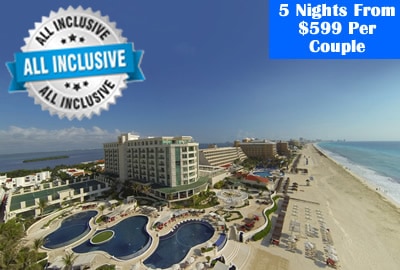RCI and II charge a yearly subscription fee, and additional costs for when they find an exchange for an asking for member, and bar members from leasing weeks for which they currently have exchanged. how to add name to timeshare deed. Owners can likewise exchange their weeks or points through independent exchange companies. Owners can exchange without needing the turn to have an official association contract with the business, if the resort of ownership agrees to such plans in the original contract. Due to the guarantee of exchange, timeshares often sell no matter the area of their deeded resort. What is rarely revealed is the distinction in trading power depending upon the place, and season of the ownership.
Nevertheless, timeshares in extremely preferable areas and high season time slots are the most costly on the planet, subject to require typical of any greatly trafficked vacation area. An individual who owns a timeshare in the American desert neighborhood of Palm Springs, California in the middle of July or August will have a much minimized ability to exchange time, because fewer come to a resort at a time when the temperature levels are in excess of 110 F (43 C). A significant distinction in types of trip ownership is in between deeded and right-to-use contracts. With deeded contracts making use of the resort is generally divided into week-long increments and are offered as real estate through fractional ownership.
The owner is also accountable for an equivalent portion of the genuine estate taxes, which typically are gathered with condominium maintenance charges. The owner can possibly deduct some property-related expenses, such as genuine estate taxes from taxable income. Deeded ownership can be as complex as straight-out property ownership in that the structure of deeds vary according to regional residential or commercial property laws. Leasehold deeds prevail and offer ownership for a fixed duration of time after which the ownership goes back to the freeholder. Periodically, leasehold deeds are used in perpetuity, nevertheless numerous deeds do not communicate ownership of the land, but simply the home or unit (housing) of the accommodation.
Therefore, a right-to-use contract grants the right to use the resort for a specific number of years. In many nations there are serious limitations on foreign home ownership; hence, this is a typical approach for developing resorts in countries such as Mexico. Care should be taken with this form of ownership as the right to use often takes the kind of a club subscription or the right to utilize the appointment system, where the reservation system is owned by a company not in the control of the owners. The right to use might be lost with the demise of the controlling business, due to the fact that a right to utilize purchaser's agreement is typically only excellent with the present owner, and if that owner sells the home, the lease holder might be out of luck depending on the https://fortunetelleroracle.com/startups/the-single-strategy-to-use-for-how-does-the-club-lakeridge-timeshare-keep-their-maintenance-fees-low-639833 structure of the contract, and/or current laws in foreign locations.

An owner may own a deed to use an unit for a single given week; for instance, week 51 normally includes Christmas. A person who owns Week 26 at a resort can use only that week in each year. In some cases systems are offered as floating weeks, Get more info in which an agreement defines the number of weeks held by each owner and from which weeks the owner may select for his stay. An example of this might be a drifting summer season week, in which the owner may pick any single week during the summer. In such a circumstance, there is most likely to be greater competitors throughout weeks featuring vacations, while lower competition is likely when schools are still in session.
Some are sold as turning weeks, frequently described as flex weeks. In an effort to give all owners an opportunity for the very best weeks, the weeks are turned forward or backward through the calendar, so in year 1 the owner might have usage of week 25, then week 26 in year 2, and after that week 27 in year 3. This technique offers each owner a fair opportunity for prime weeks, but unlike its name, it is not flexible. An alternative type of real estate-based timeshare that combines functions of deeded timeshare with right-to-use offerings was developed by Disney Holiday Club (DVC) in 1991.

Some Of How To Buy Someones Timeshare
Each DVC member's home interest is accompanied by a yearly allotment of getaway points in percentage to the size of the property interest. DVC's vacation points system is marketed as highly flexible and might be utilized in different increments for holiday remains at DVC resorts in a variety of lodgings from studios to three-bedroom rental properties. DVC's getaway points can be exchanged for getaways worldwide in non-Disney resorts, or might be banked into or obtained from future years. DVC's deeded/vacation point structure, which has actually been used at all of its timeshare resorts, has been embraced by other big timeshare developers including the Hilton Grand Vacations Business, the Marriott Trip Club, the Hyatt House Club and Accor in France.
Points programs yearly offer the owner a variety of points equal to the level of ownership. The owner in a points program can then utilize these points to make travel arrangements within the resort group. Many points programs are connected with large resort groups providing a large choice of options for location. Numerous resort point programs offer versatility from the conventional week stay. Resort point program members, such as World, Mark by Wyndham and Diamond Resorts International, may ask for from the whole readily available inventory of the resort group. A points program member might typically ask for fractional weeks along with complete or multiple week stays.
The points chart will enable aspects such as: Popularity of the resort Size of the lodgings Variety of nights Desirability of the season Timeshare residential or commercial properties tend to be apartment style accommodations ranging in size from studio units (with space for two), to 3 and 4 bed room units. These larger units can normally accommodate large families easily. Units typically consist of fully geared up kitchens with a dining area, dishwasher, televisions, DVD gamers, etc. It is not uncommon to have washers and clothes dryers in the unit or accessible on the resort home. The kitchen location and amenities will show the size of the particular system in question.
Traditionally, but not solely: Sleeps 2/2 would generally be a one bed room or studio Sleeps 6/4 would generally be a 2 Helpful site bedroom with a sofa bed (timeshares are offered worldwide, and every venue has its own special descriptions) Sleep privately generally refers to the number of guests who will not need to walk through another visitor's sleeping location to use a bathroom. Timeshare resorts tend to be strict on the variety of visitors allowed per unit. timeshare technology to show what x amount of points get someone. System size affects the expense and demand at any given resort. The exact same does not apply comparing resorts in different places. A one-bedroom system in a preferable location may still be more expensive and in greater need than a two-bedroom lodging in a resort with less demand.